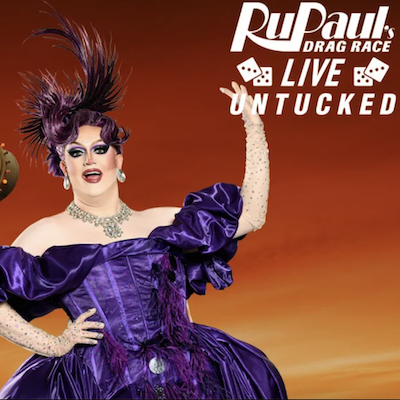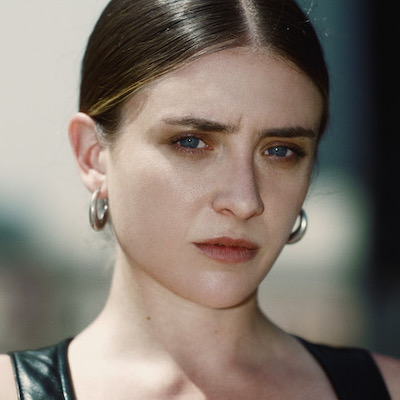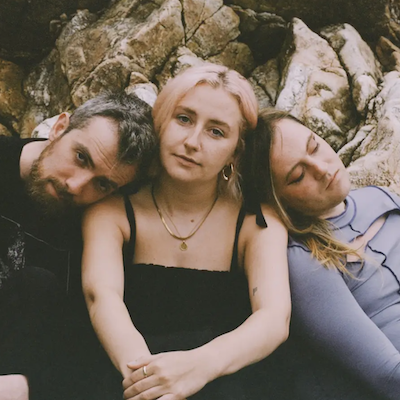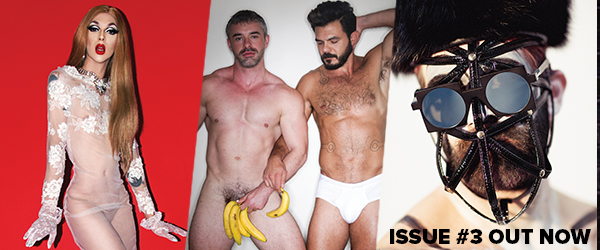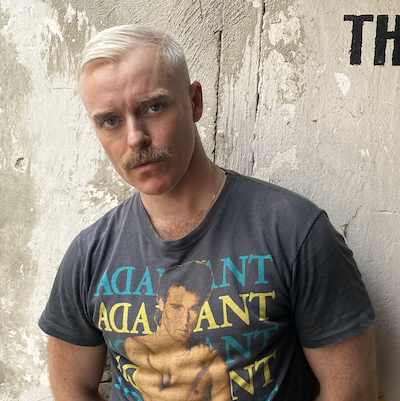
When Loverboy thinks back to brighter days of clubbing, aka pre-2020, one of our happiest memories is stumbling across Cormac playing Q Club in Milan last year. Since then we have signed our names up as part of the Cormac Fan Club…officially. He was the soundtrack to our daily Corona workout and our first emotional run outside – next we’re looking forward to hearing him play in an actual club again. Say what?!
As well as playing sets in places like Q Club and Berlin’s Panorama Bar, Cormac also has a monthly show on Rinse FM and has also just launched his own label, Polari as well as its first release, ‘Hit Me’ by Kiwi. So what better time to catch up with Cormac himself and discuss how Electronic Music and Queer History will be forever entwined, his favourite Polari term and why he signed Kiwi as his first artist.
What age were you when you first got into Electronic Music?
I listened to many genres as a kid; there was a lot of music in our house growing up. My mum comes from a traditional Irish music family so we had plenty of Irish music, and I have two music-obsessed brothers who are ten and twelve years older than me. One was very much into punk and rock; David Bowie, Iggy Pop, Fleetwood Mac for example, and my other brother was more into kind of new wave and more synthesised music although he also loved the Smiths and Kate Bush.
The dance music thing I guess came from my other brother. He was into UK 80’s synth pop so I first heard drum machines via The Human League, Gary Numan, New Order, and Depeche Mode. I remember sneaking into his room and listening to Depeche Mode’s ‘Violator’ album and feeling something jump in my chest when the first few synthetic bars of ‘World In My Eyes’ played. Those synth stabs really woke me up. That’s a distinct memory for me because in that moment nothing much else existed.
Madonna introduced me to Shep Pettibone. The ‘You Can Dance’ album was the first time I heard 12” extended dance music tracks mixed together. That kept me busy until an illegal rave opened in my hometown. That is when I became aware of mixing and DJ.s. I heard Carl Cox there in the 90’s. I hadn’t realised until then that music could be a proper job.
It didn’t feel like much of a jump actually from my brother’s bedroom to raves, and it didn’t feel like a big jump from my brother’s music collection to techno, it felt like a very natural trajectory. I guess I was always chasing that heart feeling that I got from ‘Violator’, and the freedom that music gave me. I was always in that world somehow.
I know you began as a dancer, right?
Study-wise, at Uni, yes, I explored dance first, but not for long. I had started DJing a bit and once during a class on ‘Performance’ I thought, I could stay here and learn this in theory or I could just go do it, so I left. Not that DJing is performing in that sense, but it is kind of connected in that it’s public. DJing felt safer to me, I could hide behind the music rather than be so exposed as a performer.
In that way DJing and performing dance are opposites, but they have crossovers. I mean as a DJ I try always to be in the moment with the music. It might sound a bit pretentious but to be a channel or a medium for music. I think when you’re a dancer that is also very much the case; you’re a medium for the music in the moment of expression.
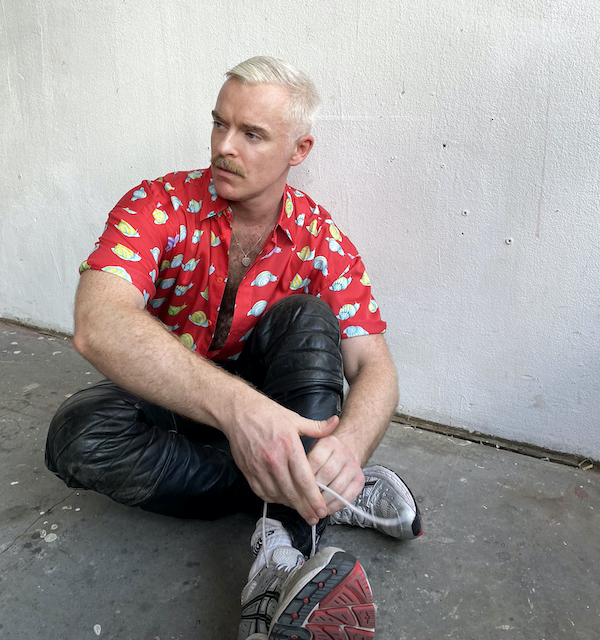
Was playing music with a Queer message/history always important to you? Or is that something that has grown?
I guess both. I think unavoidably there’s always been a queer element to what I do. Electronic music history is important to me and you can’t explore that without getting a bit queer. Dance music history is queer. If my selection is or was more “gay”, it’s really very unconscious. As I’ve gotten older and more confident I found myself more comfortable with my music choices and tastes. That combined with now playing in places where I feel very comfortable has been a big game changer for me. That’s changed everything for the better in terms of how I play. Playing at Panorama Bar or Laboratory for example, has given me a lot of confidence to play more honestly. Gay reference is so visible and supported there.
I don’t think of my music as having a Queer message, I’m rarely choosing music on that basis. That said I’m proud to be a gay selector and very happy to have a connection to the wealth of queer talented artists in the past and present that have made incredible music that I still or will play. So it’s by default I guess that I might have up until this point a queer message. I’ve heard it said that sometimes the most political thing you can do is be yourself. That of course has added weight, if your rights or privilege is less because of who you are by default. You might then be seen as doing something political when in fact you’re just living your life, following your tastes, doing your thing.
I remember first discovering you at Q Club in Milan last year when I’d come to town for a Michael Kiwanuka gig. I wasn’t expecting to end up dancing on my own and living in the early hours of the morning. Thank you for a great night! What has been your favourite experience DJing so far?
You know what, that makes me really happy to hear. Life is complicated, eh? Good to let loose and get lost and enjoy. I need to do that often too, so it means a lot to me that the music allowed you to get there, and that I could facilitate that in someway. Milan was a fun gig.
Regarding favourite DJ experiences, I would say as a baseline anywhere that has a good system, a great open-minded crowd who are respecting each other and enjoying each other is important. My favourite places to play are those parties that already have a scene going with their locals; it always feels like a privilege to step into those scenarios. The “source” of the party is important. I mean I find that the party feeling or atmosphere is really an extension of the people behind the scenes, their intentions and attitude.
Tell me about your monthly set on Rinse FM. You’re giving me ASMR vibes with how low/slow you keep your voice! Ha-ha…. it’s very relaxing! I love it in contrast to the music you play. Were you conscious of how you wanted to present your voice when DJing?
When I record my shows I’m at home or in the studio so it’s quite quiet. I guess that creates a more intimate experience sound-wise. Also I have my favourite valve mic that I use which is very warm. The show (and the label) have kept me a bit more sane in the absence of gigs, it’s been a good focus and kept me engaged with music. Hype and energy is fine if it’s natural and real: if I’m playing something that I really love and I believe is good then it doesn’t need to be hyped and it doesn’t need to be performed and it doesn’t need to be as loud as possible. The world is very loud at the moment; I’m perhaps navigating more toward the quieter things right now. The things that I need to listen to more intently.
Now you’re gearing up for the launch of your own label, Polari. Tell us about how you came to that name?
I had a few names in the bag. Some that were more humour led (I’m a big fan of humour), but in the end Polari fitted because it embraced the queers and the allies and the misfits and the non-conformists. There’s a lot of division right now, even among the LGBTQIA community, so I wanted something inclusive and supportive. I liked the idea of music as a language and also Polari alongside cruising, gay communes; leather bars are parts of gay culture map that I fear disappearing all together so I wanted to reference it a bit.
What is your favourite example from Polari itself?
I love ‘Varda the hoofer’ meaning look at the dancer! : ) ‘Varda the dish on that’ is good also. You can go look that one up! Haha…
One positive thing that seems to have been more apparent in 2020 is that everyone wants to lift others up and promote them and their message. Support the community. What is the manifesto of your label?
You know it’s very nice that you tune into people wanting to promote and lift others up. There seems to be an equally loud voice at the moment of trying to divide people. Perhaps there is not a music manifesto beyond showcasing music that I love and music that I would play in a club. It might be 100 BPM it might be 130 BPM. There’s a decent range within that so simplistically put, without sounding like too much of an arsehole I hope, I want to just present good music.
Why did you decide to launch a label at this point in your career?
It’s been brewing for a while. I signed the first few releases last year the covid break has given me time to galvanise and get things moving. I needed some projects to get stuck into so I got a dog, and pushed ahead with the label.
Kiwi is your first release. How did you discover him and why did you choose him to be the debut release?
Well I first met Kiwi more than 10 years ago when I used to play Bugged Out! in London. More recently I’ve been paying attention to and loving many of his productions. There was a cheeky nod to trance in some things that I found a bit brazen, which I love. Last year I was invited to play at his party Crossbreed in London. I knew the party, I’d seen it online and I thought its seemed like a cool sex positive event. Also I noted it was pretty diverse. A lot of sex parties I’ve played at have been gayer, and I thought it was cool that more of a spectrum party was happening. A lot of fetish events in London can be really stuffy and more about the look than the music. Knowing Kiwi, I felt the party would have a good balance, with music being the focus. I also appreciated his honesty online about being sexually nonconformist and open-minded. I thought that was pretty cool and ballsy.
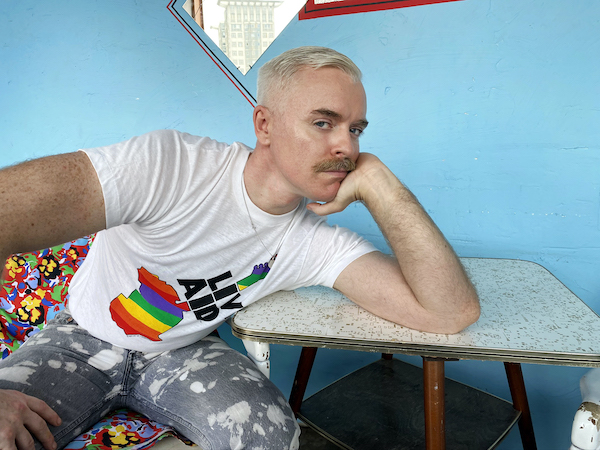
You are also involved in the artwork too. Can you tell us a bit about that too? And also the art for Kiwi’s release specifically?
The Polari artwork will showcase work from visual artists that I’ve connected with. Record art is important to me. I started buying records at a time when album art was a big thing and I would often get lost in lyric sheets and album art. I’m not offering all of that but certainly the visual is important. I’m not a visual artist by any stretch so I thought to give that opportunity to those queer artists whose work I like at the moment. Each artist will do a run of four sleeves, and the first one Scorch aka SHREK666 is a friend from Glasgow whose art I adore. My heart is more in my ears than my eyes. I’m not the most visually creative person but I’m surrounded by a lot of visual artists doing great things. Rather than try to master everything I thought it was a great opportunity to showcase their work and it could just again bring a sense of community and collaboration to the project.
What else is coming up for Polari?
Another one, possibly two releases this year, and a further four signed for 2021. Readers, Please send me music 🙂
We are named after the biggest selling single of 2001, so we always ask everyone – what is your favourite Mariah Carey song?
Ah you are? I see. Well I was never a massive Mariah fan but it’s hard not to love her in these last years! Have you seen the YouTube clip of her loving everything? It’s great. There’s another one where she needs a moment. That’s classic also. Look on YouTube. Mariah needs a moment. I need a moment also now. My pup needs a walk!
Follow Cormac on Instagram, Soundcloud & Facebook.
Follow Polari on Instagram & Soundcloud.
Photography and Styling by Justacoupleoftshirts for Loverboy.



